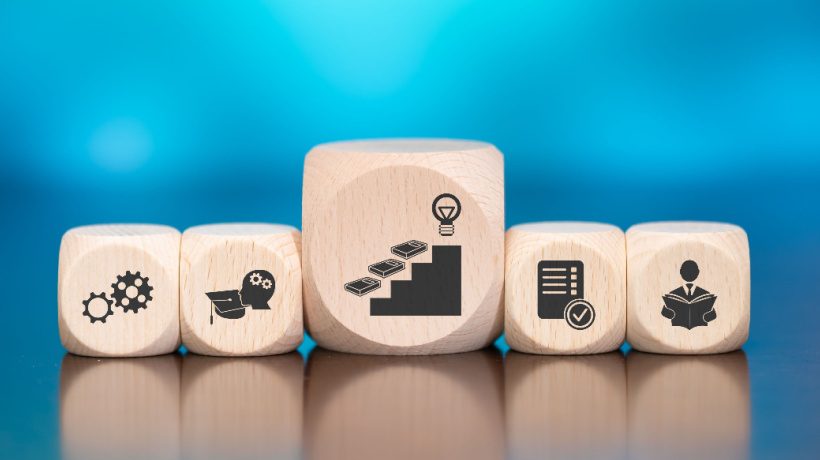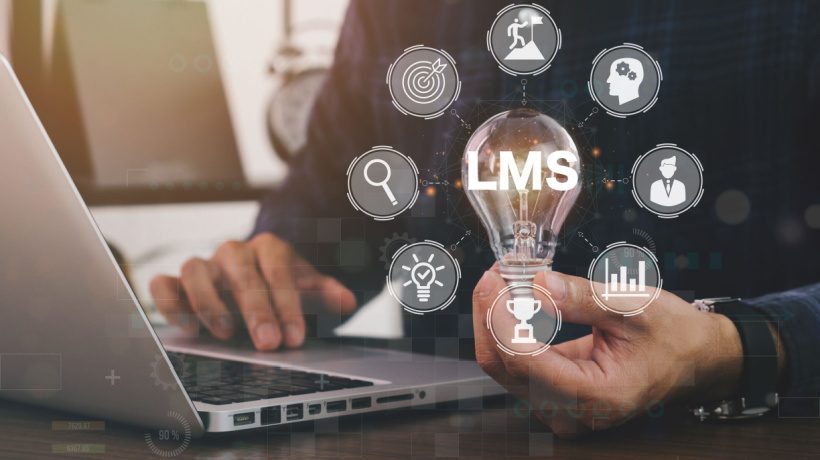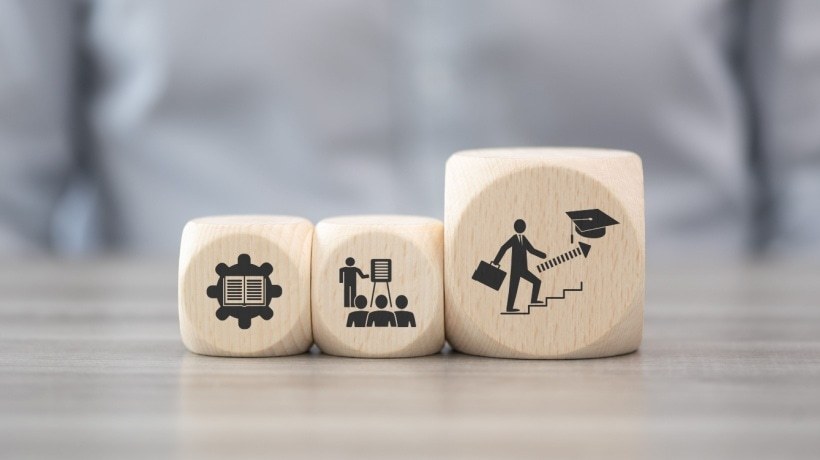Professional Education: Technology Disrupted Many Industries
Technology has brought deep changes in many industries. Back in early 2000, everyone was abuzz with the “segment of one”. How would I know what you, as a single person, want to buy or is interested in? Technology has been rapidly evolving and nowadays the power of companies like Google or Amazon is tremendous. Thanks to complicated algorithms and Artificial Intelligence, their predictive models are quite accurate. They would know what your tastes in books or movies are; when you would be ready to buy a car, etc. What seemed far-fetched almost 20 years ago is becoming the norm today.
Meanwhile, on another front, technology started to disrupt the regular distribution channels. Amazon, which has been at the forefront, is an example of how the book (and other products as well) industry was revolutionized. Music followed the same path with Apple and the iTunes model of downloading a song for $0.99. Not only has it changed the delivery channels, it also changed the business model of the industry. In music, artists were starting to see their revenues from record sales diminish and had to focus on live events and concerts to generate revenues. Disintermediation of retail shops by online stores has put a stress on the brick and mortar model, leading to closures of outlets and rethinking the distribution channels (“omni-channels”).
Technology not only revolutionized the industry basics of retail or music, but it also modified customers’ expectations and behaviours. They can order their favourite books, food, appliances, grocery (etc.) from their favourite websites or applications. With time, all these changes in business models and delivery formats, have started to permeate other industries.
The current learning systems will simply not cope with the existing demand.
The Education Industry Is Not Immune To Disruption
The Education industry is not immune to these changes. On the contrary, EdTech (Education Technology) has been growing very fast in the past few years. According to a report from EdTechXGlobal and Ibis Capital, the EdTech market will grow to $252bn in 2020, experiencing a 17% per annum growth. In a similar fashion, investment has been increasing in the sector.
The advent of MOOCs (Massive Open Online Courses) from companies like Coursera, Udacity or the Khan Academy are examples of the changes. They provide access to knowledge and learning for free to millions of learners across the globe - in developed and emerging countries alike. Many who didn’t have access to proper skill learning have been able to do so. In an article published in Harvard Business Review, Who’s Benefiting from MOOCs, and Why, the authors (three of which are working at Coursera) report that those from low social economic status from non-OECD countries were more likely to report tangible career benefits compared to those from OECD countries. Similarly, those with low or no education from non-OECD countries were more likely to report tangible career benefits compared to those from OECD countries. These disadvantaged learners reap the benefit of learning new skills thanks to these platforms. To put things further into perspective, 90% of the world’s population under 30 is in emerging markets (EdTechXGlobal and Ibis Capital report), thus creating a huge need to educate them and reinforcing the essential role and impact of online education. The current learning systems will simply not cope with the existing demand.
People will need to learn new sets of skills and they will need it to learn it fast.
Education From A Macro Perspective
From a more macro perspective, the need for change in Professional Education is also apparent. In an insightful article on INSEAD Knowledge titled How Disruptive Will Automation Be? Annet Arris, Adjunct Professor of Strategy at INSEAD, discusses how automation will have an impact on the future of work and society. Amongst some of the approaches needed to face these changes, retraining of the workforce to new sets of skills is one of the answers.
Taken in the context of disruption of the future of work, the role of professional education becomes even more acute. Companies need to make sure they have the right people at the right place. The difference with the industrial revolution is that nowadays speed has transformed the need for adaptability to an extreme. Thus, in view of the speed and the sheer number of people that need retraining, the method and format of Professional Education need to change.
As such, people will need to learn new sets of skills and they will need it to learn it fast. Customized learning is one of the most efficient ways to speed up the learning process. Focus on the weakness and not on everything as there may be knowledge already present that doesn’t need to be rehashed.
In Professional Education traditional learning methods are broken.
Professional Education: The Need To Adapt The Learning Methods
(Note: I will refer to Professional Education as including Professional Certification, and corporate training for skills and knowledge)
In view of all the changes (technological, behavioral, and societal), Professional Education traditional learning methods are broken. In a recent article published on bbc.com, Why so many companies get training wrong, the inadequateness of corporate training and its intended purpose is discussed. While so much money is poured into corporate training on a yearly basis ($359bn was spent in 2016), only a small fraction of the recipients tells about an impact of the training in terms of learned skills and how they have been applied in the actual work environment. One of the problems is the often one-size-fits-all approach to training as well as the learning methodology.
“The Segment Of One” For Learners
Today, the aim is to devise a learning experience that is adapted to a particular person or a group that shows the same profile. I use the term “experience” because the delivery model and interaction with the learner needs to change. The learning experience becomes interweaved with the learner requirements and specificities. This is not a one-size-fits-all model anymore. Such model takes into consideration the learner's background, their present situation, and their ultimate objectives. By understanding the learner profile, the learning experience can become customized; it adapts to the learner's needs. The learning experience takes the learner from a starting point (the need to learn skills and/or knowledge) to an end point (apply a skill in one’s work, get a more qualified job, etc.). Without the advent of technology this would not have been possible. Without a change in learners' behaviors and expectation, such a learning methodology implementation would also not have been possible.
Repetitive and consistent practice is essential to acquire a deep knowledge, understanding, and application of a skill.
A New Learning Methodology
On another front, the learning environment is changing because the demand and pressure of stakeholders have evolved. Learners, whether as individuals or in a corporate setting, are pressed for time. Companies do not want the learning experience to disrupt the actual work, however, they still want their employees to become more skilled and knowledgeable. Thus the need for on-demand learning has increased. Furthermore, the demand for large-scale training through eLearning has also grown. It solves the problem for companies that have to train a very large number of people (say 5,000 or more). In such a situation, the traditional classroom delivery is impossible.
So how do you adapt the learning methods to today’s need? For those who have been playing a musical instrument, they are familiar with the daily practice to ingrain the techniques to be learned. Repetitive and consistent practice is essential to acquire a deep knowledge, understanding, and application of a skill. This is why I am a strong advocate of supported practice. Someone could always learn the theory from a book or the online part of a course, but when it comes to applying the knowledge to exercises, case studies or even real life situations, books or one-size-fits-all training fall short. The support of an adapted learning methodology becomes key, with regular follow ups after the training is done. The follow-up may come from an external resource or an internal one. It may be done “live” or through video-conference. The importance is the interaction and exchange between the learner and the expert. We have all heard the buzz words of blended learning, adaptive learning, eLearning, etc. These are just tools and formats that depict the intrinsic changes of the way we learn. They are a means to an end, not the end itself. They will help support the changes in delivery methods.
While the revolution of Professional Education is on the march there are certain things that technology cannot do for learners - the most important of which are the actual act of studying and putting the effort. And for this, no technology nor anyone can help.









